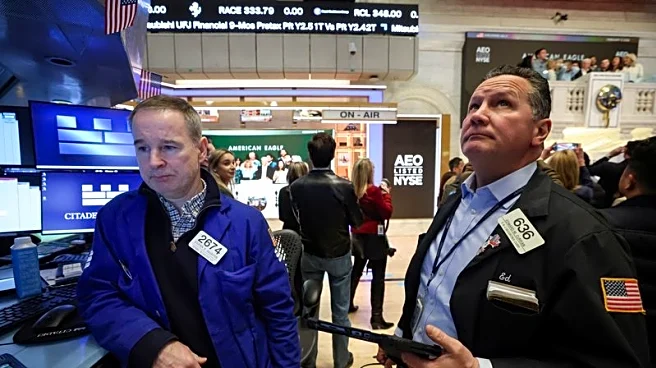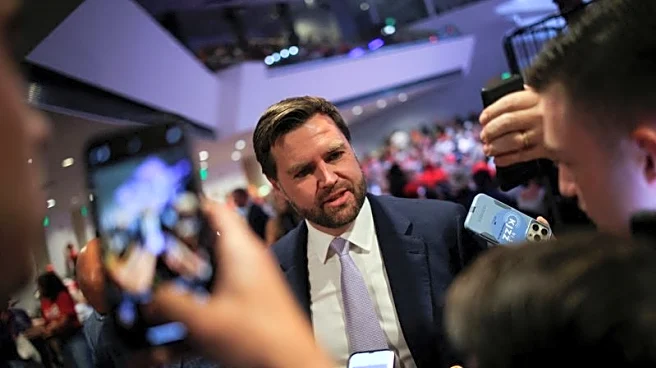Rapid Read • 8 min read
The U.S. Commerce Department reported a decline in imports for June, attributed to President Trump's imposition of steep tariffs on various industries and trading partners. Since his return to the presidency in January, Trump has raised the U.S. tariff rate to unprecedented levels, affecting trade dynamics significantly. These tariffs have been adjusted multiple times to facilitate negotiations, resulting in agreements with major trading partners such as Japan and the European Union. However, higher tariffs for numerous countries are set to be reinstated unless further deals are reached. The economic growth in the U.S. has been skewed by fluctuations in trade and inventories, with recent data indicating a slow but positive growth trajectory.
AD
The tariffs imposed by President Trump are having a profound impact on the U.S. economy, particularly in disrupting supply chains and affecting business planning. The administration's policies, including immigration and government job cuts, are expected to further strain economic growth. The weaker-than-expected job growth in recent months has added to concerns about the economic outlook. The firing of the Bureau of Labor Statistics commissioner by Trump, following disappointing job numbers, underscores the administration's focus on economic performance. The decline in trade volumes, as forecasted by Oxford Economics, suggests that elevated prices and high inventory levels are dampening demand for goods, which could lead to broader economic challenges.
As tariffs are set to snap back into effect, unless new agreements are reached, businesses and consumers may face increased costs and supply chain disruptions. The administration's policies could lead to further economic strain, with potential impacts on employment and consumer spending. Stakeholders, including businesses and trade partners, are likely to closely monitor negotiations and policy changes to mitigate adverse effects. The economic forecasts suggest a continued decline in trade volumes, which may prompt further policy adjustments or negotiations to stabilize the economy.
The broader implications of President Trump's tariff policies include potential shifts in global trade relationships and economic alliances. The tariffs may lead to long-term changes in supply chain strategies, as businesses seek to adapt to new trade dynamics. Additionally, the administration's approach to economic management, including the firing of key officials, raises questions about governance and policy stability. The impact on consumer prices and business costs could have lasting effects on the U.S. economic landscape.
AD
More Stories You Might Enjoy











